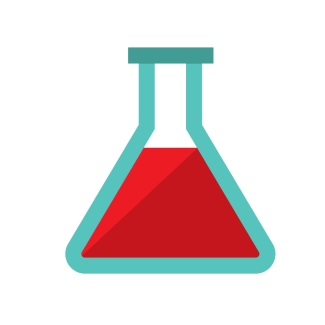Canadian Blood Services supports development of updated clinical guideline on transfusion for hemoglobinopathies
Friday, June 07, 2024 Abby Wolfe
Red blood cell transfusions may be a life-sustaining therapy for individuals living with sickle cell disease, thalassemia and other conditions that affect the structure, chemistry, or production of red blood cells— often referred to as hemoglobinopathies. Clinical guidelines that provide evidence-based recommendations in these settings are important to inform optimal transfusion strategies for patients.
Since 2018, Canadian Blood Services has supported the development of evidence-based guidelines on red blood cell transfusion in patients with hemoglobinopathies through its work with the International Collaboration for Transfusion Medicine Guidelines (ICTMG). The ICTMG is an independent collaborative of volunteers with expertise in transfusion medicine and related disciplines whose vision is “The right transfusion, always, everywhere”.
In 2018, the ICTMG published a systematic review of scientific evidence on hemoglobinopathies and a clinical guideline for red blood cell specifications in this patient population. Affirmations and endorsements from organizations such as the American Society of Hematology (ASH) and National Advisory Committee on Blood and Blood Products (NAC) helped share the guideline with knowledge users in Canada and internationally, while ICTMG project members also developed supporting resources in various formats to support health-care professionals to implement the guideline’s recommendations. Funding to complete the systematic review and develop the guideline was partially provided by Canadian Blood Services, and the development of a podcast about the guideline was supported by a BloodTechNet award from Canadian Blood Services.
Now, these important publications are in the process of being updated with current evidence. Starting in 2023, the ICTMG updated the systematic review to include evidence published from 2016 to June 2023. As part of the hemoglobinopathies guideline update, the ICTMG incorporated perspectives of lived experience, an important addition made possible with input from caregiver representative, Biba Tinga, as well as patient representative, Ulysse Guerrier.
It's very important to have a bigger pool of diverse donors. There are a lot of people like me who need blood.
- Ulysse, blood recipient, living with sickle cell disease

Some of what ICTMG heard from their engagement in this guideline update process included an emphasis on the importance of avoiding adverse effects of red blood cell transfusion while ensuring blood is available when needed (like during surgeries or emergencies), and the need for a sufficiently large and diverse donor base to support the ability to match rare blood needs.
The ICTMG is currently preparing to publish the updated hemoglobinopathies guideline in a peer-reviewed journal. It will be available on the ICTMG’s website, ICTMG.org, once available.
- Visit blood.ca to learn more about sickle cell disease and the need for diversity in Canada’s Lifeline.
Canadian Blood Services – Driving world-class innovation
Through discovery, development and applied research, Canadian Blood Services drives world-class innovation in blood transfusion, cellular therapy and transplantation—bringing clarity and insight to an increasingly complex healthcare future. Our dedicated research team and extended network of partners engage in exploratory and applied research to create new knowledge, inform and enhance best practices, contribute to the development of new services and technologies, and build capacity through training and collaboration. Find out more about our research impact.
The opinions reflected in this post are those of the author and do not necessarily reflect the opinions of Canadian Blood Services nor do they reflect the views of Health Canada or any other funding agency.
Related blog posts
A research team that includes experts from Canadian Blood Services and the McMaster Centre for Transfusion Research showed that genotyping red blood cell proteins could help make transfusions safer for patients with sickle cell disease.
Transfusions can be a life-saving treatment for people living with sickle cell disease but finding compatible blood can be a challenge because Black and racialized donors—the ones with the best potential to match most SCD patients— are underrepresented in the donor pool. Read about initiatives that can support this patient group by improving the red blood cell inventory.
Awa Diagne, a research assistant at Canadian Blood Services, describes her experience working on the Piloting and evaluating a community-led strategy for diversifying the stem cell registry project over summer 2023.


